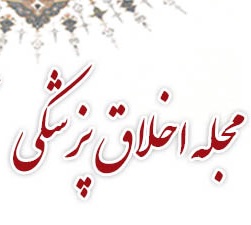دفاعيه ژنتيكي و چالش هاي اخلاقي آن
مجله اخلاق پزشکی - علمی پژوهشی,
دوره 2 شماره 4 (1387),
28 تیر 2016
,
صفحه 135-146
https://doi.org/10.22037/mej.v2i4.12163
چکیده
در مطالعات مربوط به ژنتيك رفتاري، شاخه اي تخصصي تحت عنوان «ژنتيك خشونت» به ارزيابي استعداد ژنتيكي افراد براي ارتكاب اعمال ضداجتماعي، خشونت آميز و هنجار شكن مي پردازد و برخی حقوقدانان و وكلاي مدافع سعي در يافتن شواهدي ژنتيكي براي تمايل به موضوعي را دارد كه از آن به عنوان «سرنوشت ژنتيكي» ياد مي شود.
اين افراد استدلال می کنند كه هنجار شكني و ارتكاب خشونت بوسيله موكلين آنها، ناشي از «سرنوشت ژنتيكي» و «فرامين ژني» و بيولوژيكي بوده و آنان اراده اي براي عدم ارتكاب خشونت نداشته اند و نيت مجرمانه همانند ساير خلافكاران براي آنان قابل اثبات نمي باشد.
البته تا كنون اين گونه دفاعيات در محاكم و بوسيله قضات يا هيات منصفه مقبول واقع نشده و جامعه شناسان، روانشناسان، علماي تعليم و تربيت، جرم شناسان، فعالان اخلاقي و مجامع مذهبي و حتي علمای علم ژنتیک، تلاش طرفداران «دفاعيه ژنتيكي» را، روشي براي مخدوش نمودن مجموع ارزشهاي اخلاقي و مباني مسئوليت مدني جوامع انساني و معيارهاي حقوقي مي دانند و مسلم است كه موجه شمردن ارتكاب خشونت بر حسب سرشت و ژنتيك، به معناي عدم وجود اراده قابل كنترل در ارتكاب عمل بوده و در نهايت مستمسكي براي نفي مسئوليت مرتكبين اعمال ضد اجتماعي در قبال اعمال خود و خطري براي ارزش هاي اخلاقي و اجتماعي جامعه بشري خواهد بود.
- ژنتيك خشونت؛ مسئوليت مدنی؛ اخلاق
ارجاع به مقاله
مراجع
- Levitt M, Manson N. My genes made me do it? The implications of behavioural genetics for responsibility and blame. Health Care Anal. 2007 Mar;15(1):33-40.
- Appelbaum PS. Behavioral genetics and the punishment of crime. Psychiatr Serv. 2005 Jan;56(1):25-7.
- Urbaniok F, Hardegger J, Rossegger A, Endrass J. Neurobiological determinism: questionable inferences on human freedom of choice and forensic criminal responsibility. Fortschr Neurol Psychiatr. 2006 Aug;74(8):431-41.
- Carey G, Gottesman II. Genes and antisocial behavior: perceived versus real threats to jurisprudence. J Law Med Ethics. 2006 Summer;34(2):342-51.
- Baker LA, Bezdjian S, Raine A. BEHAVIORAL GENETICS: THE SCIENCE OF ANTISOCIAL BEHAVIOR. Law Contemp Probl. 2006;69(1-2):7-46.
- Czerner F. The normative concept of guilt in criminal law between freedom of will and neurobiological determinism. Arch Kriminol. 2006 Nov-Dec;218(5-6):129-57.
- Janssen PA, Nicholls TL, Kumar RA, Stefanakis H, Spidel AL, Simpson EM. Of mice and men: will the intersection of social science and genetics create new approaches for intimate partner violence? J Interpers Violence. 2005 Jan;20(1):61-71.
- Illes J, Racine E. Imaging or imagining? A neuroethics challenge informed by genetics. Am J Bioeth. 2005 Spring;5(2):5-18.
- Synofzik M. What happens in the brain of my patients? Neuroimaging and neurogenetics as ethical challenges in medicine . Dtsch Med Wochenschr. 2007 Dec;132(49):2646-9.
- Marx J. Behavioral genetics. Evidence linking DISC1 gene to mental illness builds. Science. 2007 Nov 16;318(5853):1062-3.
- Kelly BD. Structural violence and schizophrenia. Soc Sci Med. 2005 Aug;61(3):721-30.
- Nuffield Council on Bioethics. Genetics and human behaviour: the ethical context--summary and recommendations. J Int Bioethique. 2003 Sep-Dec;14(3-4):171-92.
- No authors listed. Murderers have rights too. New Sci. 1998 May 23;158(2135):3.
- MacKellar C. Bioethics, genetics and mental disorders - a discussion. Biomed Ethics. 1998;3(2):44-8.
- Mednick SA, Finello KM. Biological factors and crime: implications for forensic psychiatry. Int J Law Psychiatry. 1983;6(1):1-15.
- Hatch OG. The burgeoning science of genetics and the impact on public policy. J Biolaw Bus. 2004;7(4):3-6.
- Savulescu J, Hemsley M, Newson A, Foddy B. Behavioural genetics: why eugenic selection is preferable to enhancement. J Appl Philos. 2006;23(2):157-71.
- Choi CQ. The genetics of politics. Sci Am. 2007 Nov;297(5):18, 21.
- Abbott A. Behavioural genetics: a question of survival. Nature. 2007 Oct 4;449(7162):532-4.
- Levy H, Packman W. Sexual abuse prevention for individuals with mental retardation: considerations for genetic counselors. J Genet Couns. 2004 Jun;13(3):189-205.
- Lemonick MD. The search for a murder gene. Time. 2003 Jan 20;161(3):100
- Stone RD. The cloudy crystal ball: genetics, child abuse, and the perils of predicting behavior. Vanderbilt Law Rev. 2003 Oct;56(5):1557-90.
- Campbell E, Ross LF. Attitudes of healthcare professionals and parents regarding genetic testing for violent traits in childhood. J Med Ethics. 2004 Dec;30(6):580-6.
- Crampton P, Parkin C. Warrior genes and risk-taking science. N Z Med J. 2007 Mar 2;120(1250):U2439.
- Caplan AL, Magnus D. New life forms: new threats, new possibilities. Hastings Cent Rep. 2003 Nov-Dec;33(6):7.
- Weiss MJ. Beware! Uncle Sam has your DNA: legal fallout from its use and misuse in the U.S. Ethics Inf Technol. 2004;6(1):55-63.
- Jaffee SR, Caspi A, Moffitt TE, Polo-Tomas M, Price TS, Taylor A. The limits of child effects: evidence for genetically mediated child effects on corporal punishment but not on physical maltreatment. Dev Psychol. 2004 Nov;40(6):1047-58.
- Bressler DD. Criminal DNA databank statutes and medical research. Jurimetrics. 2002 Fall;43(1):51-67.
- Duster T. Lessons from history: why race and ethnicity have played a major role in biomedical research. J Law Med Ethics. 2006 Fall;34(3):487-96, 479.
- Fishbein DH. Prospects for the application of genetic findings to crime and violence prevention. Politics Life Sci. 1996 Mar;15(1):91-4.
- McCabe ER. Applications of DNA fingerprinting in pediatric practice. J Pediatr. 1992 Apr;120(4 Pt 1):499-509.
- Friedland SI. The criminal law implications of the Human Genome Project: reimagining a genetically oriented criminal justice system. KY Law J. 1997-1998;86(2):303-66.
- Adam D. Criminal courts 'should take genetics into account'. Nature. 2002 Oct 3;419(6906):422
- اردشير لاريجاني، باقر, زاهدي فرزانه, اصغري فريبا، مجله ديابت و ليپيد ايران .1384. ويژه نامه (اخلاق در پژوهش هاي باليني پزشکي) صص:71-82.
- چکیده مشاهده شده: 371 بار
- PDF دانلود شده: 153 بار
